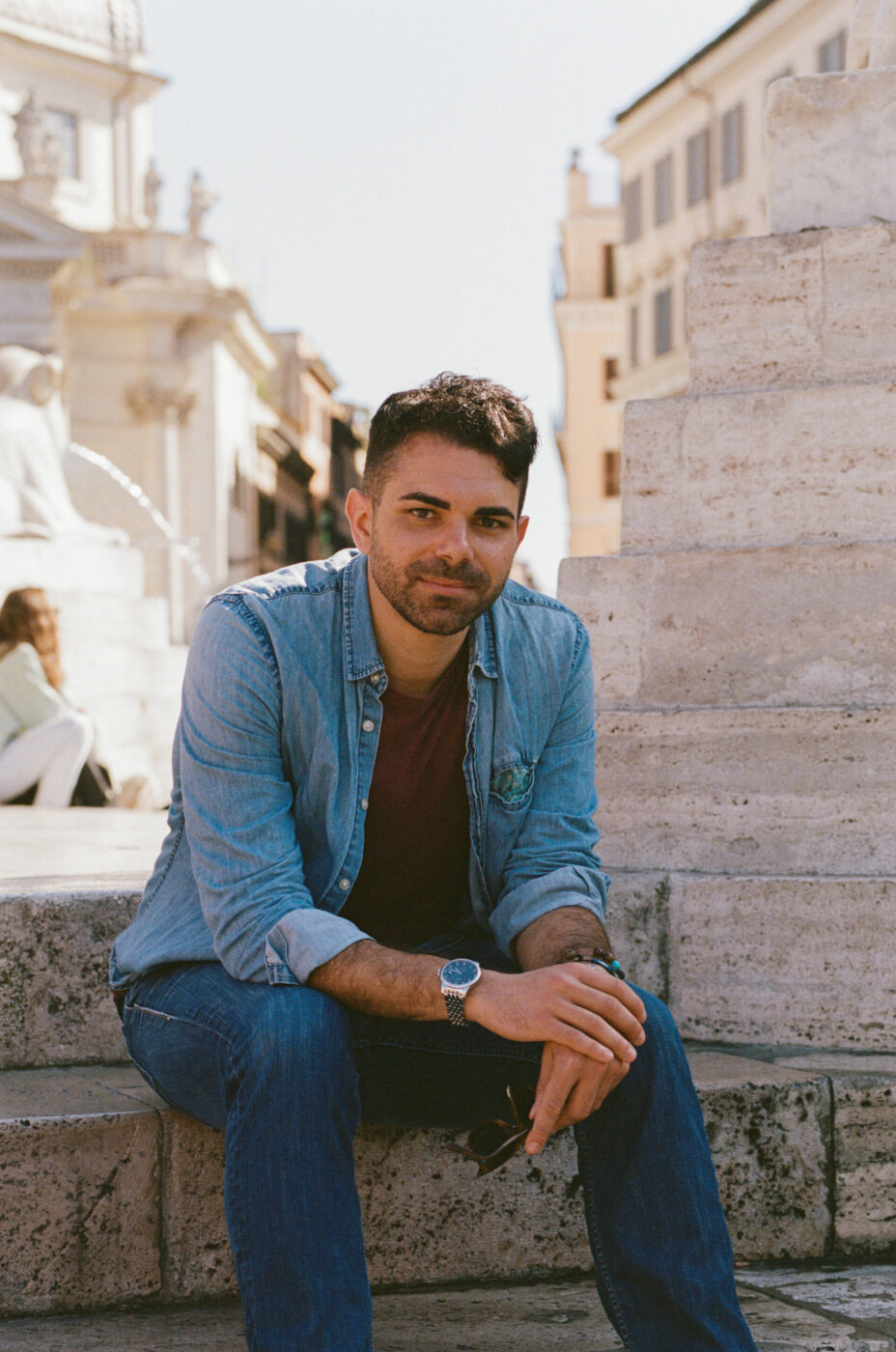Tell us a bit more about your background and your current work:
I was born and raised in Rome. My parents gave me the freedom of belief and, therefore, the freedom to choose in the future and, when I am ready, to profess the religion I want. My father is Egyptian and practices Islam; my mother is Italian and Catholic. This has always given me a great incentive to delve into the books and topics of the most diverse religions. At the same time, it has helped provide me with a very open and welcoming mindset of all cultural, religious, and socioeconomic differences.
Growing up between Italy and Egypt allowed me to perceive differences as a great ordinariness and, in later years, motivated me to discover and get to know more and more of them. Thanks to my studies in foreign languages and cultures, and then in Development Sciences and International Cooperation, I was able to study and work first in England, then Argentina, Spain, and finally Senegal.
Living and touching differences for as long as I can remember, and particularly in these years outside of Italy, has inevitably brought me into contact with many, too many, inequalities and injustices. In Argentina in particular, militancy with so many organizations for human rights and a fairer world has fuelled in me an enormous motivation to invest my life in fighting those inequalities and valuing those differences that I have always seen and perceived as an enormous richness This has led me to engage in the drafting and management of development projects both in Italy and Senegal. Working with marginalized communities, subaltern groups, and projects of different types, I realized that quality education, in every sector, is truly the key to lasting, effective, and collective development. At the same time, I realized how much my country and our free education system have enabled me to do so. That is why I decided to fight inequalities through education. I started teaching.
I discovered Teach For Italy, an organization that shares the same goals and methods. Without hesitation, I applied for their fellowship program, which led me to teach for two years in the country’s most disadvantaged schools. This experience provided me with comprehensive training to combat inequalities through education. After this journey, I decided to join the team of this incredible organization and international network as a Programme Manager. In this role, I oversee and support teachers and their educational projects in marginalized schools across the country. This work fills me with pride and allows me to make a significant impact on many teachers and students. I focus on valuing cultural differences, promoting integration, and embracing the Other—principles that have deeply shaped my own journey. Through this role, I strive to ensure that even the most disadvantaged children have the same opportunities to make the best choices in their lives.
Why did you choose to stay in Italy?
I chose to stay in Italy because it is in that context where I was born and grew up that I feel I can have more impact and greater effectiveness. Also because it is a country that has too many enormous inequalities, and I feel I can do something concrete about them.
What do you see for the future of education in Italy?
For the future of education in Italy, I see both great challenges and opportunities. On one hand, there is the essential need to ensure equal educational opportunities for all, which is an absolute priority. On the other hand, the education system must adapt to today’s society and once again become a true social elevator, fostering a fairer and more equitable society.
What are the greatest obstacles and satisfactions that you face working in this country?
The greatest satisfactions come from the numerous networking opportunities, and the chance to open schools to the world, to the local community, and to regional associations. Building a network to enhance educational quality for children and to increase opportunities within the school system makes it more attractive to new generations. The obstacles are the mechanisms of the school system, its access procedures, and the rigidity of its characteristics. Bringing about radical and structural change involves altering legislative foundations that are deeply rooted in cultural origins. Even 100 years after their inception, these foundations continue to make updates difficult.

